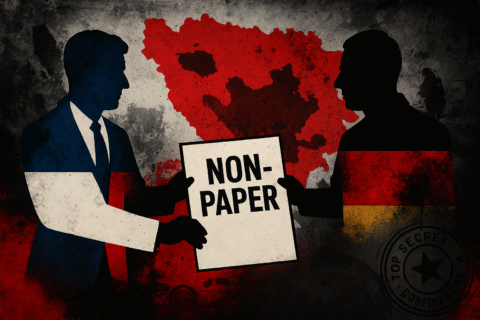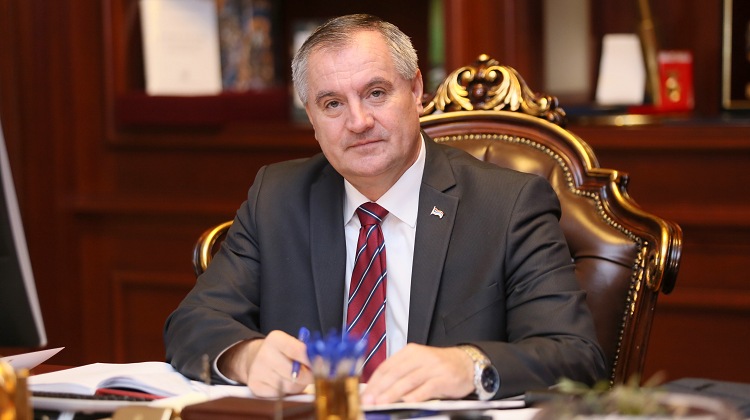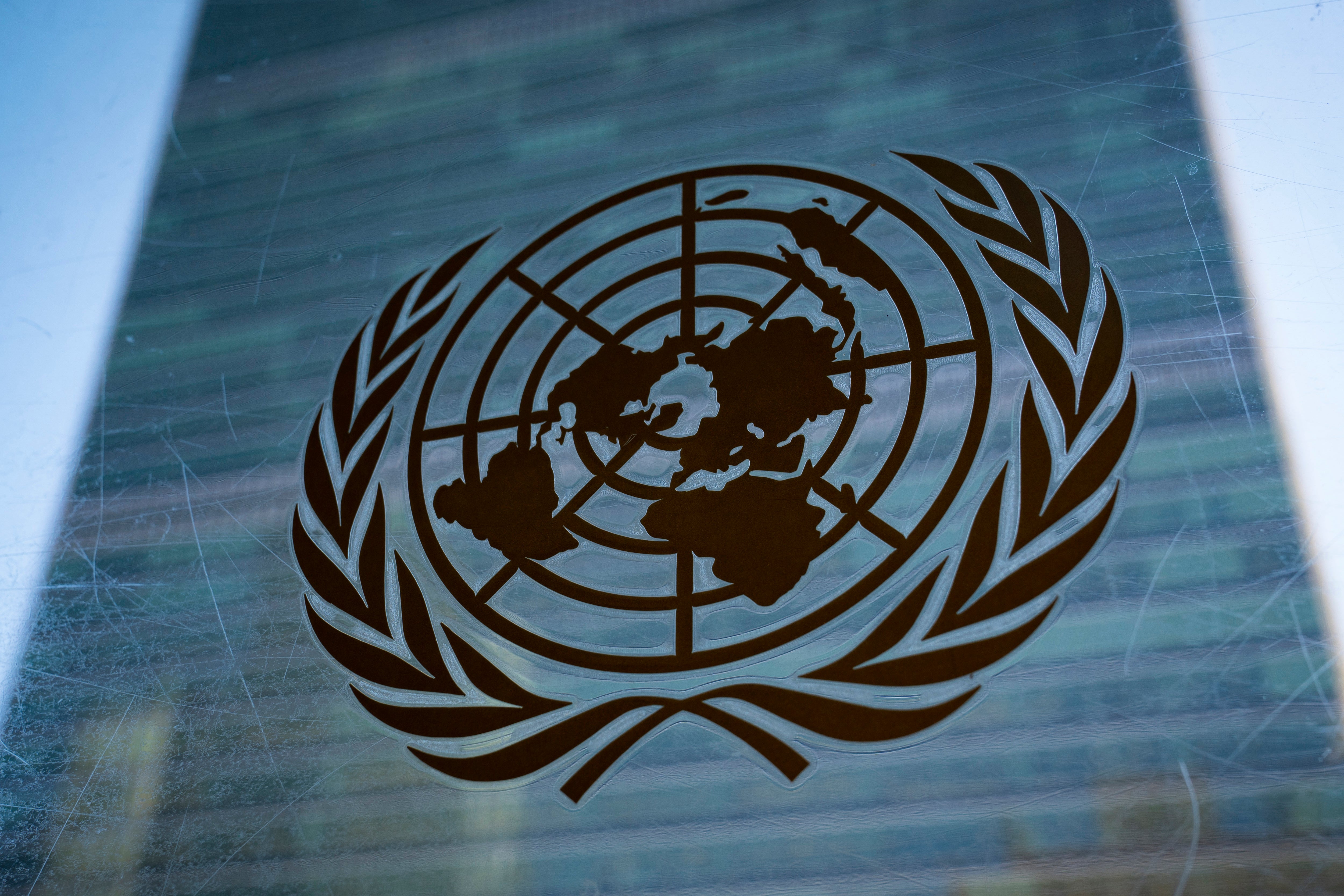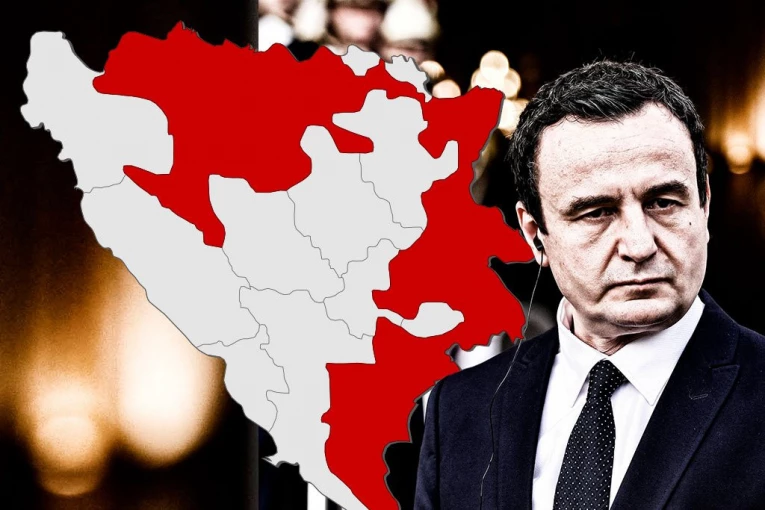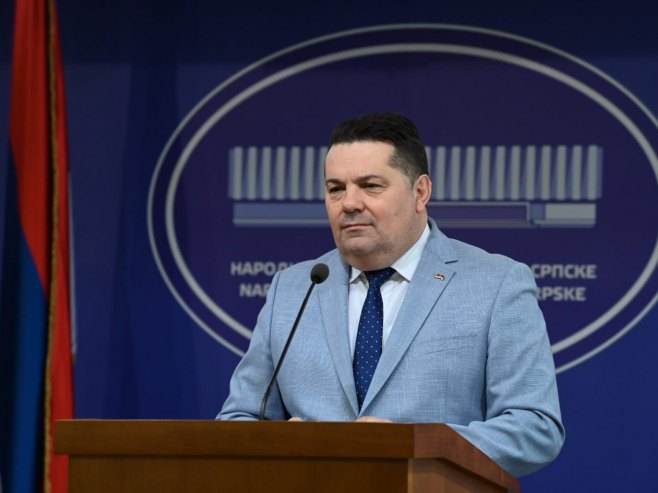In an interview with Glas Srpske, Radovan Višković, Prime Minister of the Republika Srpska, expressed that everything currently happening will eventually pass. He emphasized the need for patience to weather the imported crises and withstand the pressures being exerted on Srpska. Višković pointed out that the people from these areas have shown resilience in overcoming all imposed hardships and will do the same with these new challenges.
The interview is presented in full:
- We must share the fate of the EU countries with which we are economically connected. Today, even a powerful country like Germany is facing significant problems. In this misfortune, our fortune is that we are small. We have a small economy that can adapt more easily to all these global shocks. Unfortunately, in recent times, we have been exposed to various external political pressures aimed at the demise of Srpska, which would also mean the disappearance of the Serb people in these areas. I believe those who intended to destroy us did not expect us to survive all these years. When they created the Dayton Agreement, they believed we were a transient category that would assimilate into a unitary BiH. But that didn’t happen. If it weren’t for these new pressures and attacks on us, we would be living quite comfortably, as there are only about a million of us, and we have many valuable natural resources that have caught the eye of those same people who are now pressuring us by tightening all financial valves. But we also have many friends willing to help us. It is difficult, but we will endure. We will survive, just as we have done so far. People should not worry too much. They should protect their families, which should be the foundation of our society, – said Višković.
Recently, the US Treasury Department imposed sanctions on certain companies from Srpska. How might this affect the economic and financial situation? Is the budget stable?
VIŠKOVIĆ: The budget is stable, and all legal obligations are being fulfilled regularly. Do these sanctions affect us? Certainly, especially the companies that have been placed on the US blacklist. This is a direct attack on ordinary people, workers who have nothing to do with politics, decisions, and laws that are passed, which was the reason for imposing various sanctions. It is a classic display of brute force. We have often heard from the US ambassador to BiH that the sanctions are not directed against ordinary people. But what about the approximately 1,000 workers whose livelihoods have been endangered by this, who have lost their jobs and income? What about them? What have these people done wrong? This country has laws, courts, and prosecutors, and if someone is guilty of something, there are mechanisms to sanction them. And the US embassy knows this. They are intentionally targeting ordinary people. If someone attacks the Republic of Srpska and its budget, as well as its institutions, they are also attacking the people who live here. If, hypothetically speaking, there were no Government or National Assembly, where would they then exercise their rights? In Sarajevo? And that is something our citizens need to understand. It is often heard in cafes and various circles that people are tired of this bickering and fighting with foreigners and people from the Federation of BiH and that we should sit down and make an agreement. But the problem is not on our side; an agreement at the BiH level is only possible if it is detrimental to the Republika Srpska, its institutions, and constitutionally guaranteed rights. Does the Republika Srpska have that luxury? The answer – what would then happen to veterans’ benefits, salaries, social payments, agriculture, forests…. In the end, the unfortunate civil war in these areas occurred precisely after attempts to centralize the country, that is, attempts to impose the will of one people on the others in BiH. Now we are being imposed the same story, which fundamentally undermines the Dayton Peace Agreement. They want to destroy everything that has been built on for peace over the last 30 years. The political fires were reignited five or six months ago, and everything coincided with James O’Brien’s arrival in Sarajevo. During his visit to the Faculty of Political Sciences, he literally told the gathered politicians and officials from the Federation of BiH: “What are you afraid of when you have us behind you.” Shortly after, everything culminated in BiH.
How could the situation be further complicated by the arrival of Alexander Kasanof, who has been tasked with replacing Gabriel Escobar? He is someone who was rewarded for his role in organizing the Ukrainian Maidan.
VIŠKOVIĆ: I do not want to hide anything from our citizens and must say that the Republic of Srpska places significant hope in the US elections and their results, in the hope that an administration will finally be established in that country that will treat not only the Republic of Srpska but also the Serb people more fairly. Has anyone ever wondered how our brothers in Kosovo feel, being expelled from their ancestral homes? Institutions are being blocked, and the western countries are not reacting. Is this democracy? Again, we return to the question of what will happen to ordinary people. They are being sent a direct message – pack up and leave. Disappear from these areas. Why do I draw these parallels? Because, in that dark scenario being devised by the powerful, the situation in BiH would be even worse if, God forbid, the Republika Srpska collapsed. Some people often say, “forget about the Republika Srpska, let’s focus on how to make a living.” They, knowingly or unknowingly, forget that life depends on freedom, guaranteed by the Republika Srpska. You can have the best job in the world, but if there is no freedom, it will be worthless. Regardless of whether we agree or disagree on something, think differently, or belong to different political options, the red line for everyone should be the defense of Srpska and its institutions. Unfortunately, some political entities are willing to sacrifice it for their interests.
Can parallels be drawn between what the US Treasury is doing today and the ongoing obstructions at the BiH level, particularly regarding the blocking of major infrastructure projects, especially in the energy sector?
VIŠKOVIĆ: Absolutely, that is what I have been talking about all along. I was present at some joint meetings when political leaders from the Federation of BiH, who are part of the BiH institutions, reached a consensus with us on an important issue, and then one phone call from a foreign embassy changes everything. Everything falls apart. This is something that happens very often. Some foreign power centers do not allow any agreement within BiH that would move the country forward. They view BiH as a guinea pig, even though they constantly talk about democracy, international law, and freedoms.
There have also been reports that the Republika Srpska is not even allowed to withdraw money from abroad. What is that about?
VIŠKOVIĆ: A big fuss is being made about this in some parts of the public, as if it involves some kind of money laundering obtained in one way or another. The truth is that the Republika Srpska has friends willing to help, but they are not allowed to do so. Western countries control SWIFT in BiH. That way, they block the entry of money into Srpska from any address in the world. Isn’t that an open attack on all people, veterans, pensioners, workers, all those who are financed from the budget, which does not belong to politicians or officials, but to the citizens.
Is their ultimate goal to put the Government of Srpska in a position where it cannot pay salaries and pensions, to provoke a revolt among the people?
VIŠKOVIĆ: We have witnessed many color revolutions around the world. One of them was in Ukraine. What is left of that country today? A civil war is being fought. But those who led that country into that position don’t care, and their help consists of sending more and more weapons.
How does the attempt to challenge the Immunity Law fit into all of this?
VIŠKOVIĆ: Bosniak politicians do everything in coordination with foreign actors. The Constitutional Court of BiH has long lost any sense of its existence. They don’t protect the Constitution; they protect the interests of one people. This doesn’t exist anywhere else in the world, except here. Another thing – is it normal that in a country aspiring to become an EU member, foreign judges sit in the Constitutional Court of BiH, who are tools for dealing with Srpska.
Of course, there’s also the issue of property. Do you expect it to be raised again, that they will try to take it away from Srpska?
VIŠKOVIĆ: I would ask everyone, how is it that this issue only became contentious after 30 years? How is it that property was not an issue during the privatization of state-owned enterprises? BiH does not have its property; it belongs to the entities. Today, this is being denied, so I ask them if all the decisions made in the last three decades are then legal. What about the 51-49 relationship between the entities? What do these numbers represent? Air? It’s the space, or territory, that is divided between the two entities. We never raised the question of how the concession in Vareš was awarded to the British. That’s the Federation’s right. Whether it was done legally is another matter, and we are not interested in that. Interestingly, when the decision to award that concession was made, representatives of foreign embassies supported it. But that same right is being denied to us. When we want to build the “Buk Bijela” hydropower plant together with Serbia, it’s a big problem. If the decision had been made to award this project to a German company, I believe everyone would have stayed silent. These are the double standards. The issue of property is one of the main issues that would challenge our sovereignty. Many Asian and African countries have freed themselves from colonialism. We know who the colonizers were – precisely the powerful ones I’ve been talking about all along. Our region is rich in many valuable natural resources. They have their eye on them. We have water, forests, fertile land, hardworking people, and various ores and minerals that the entire world craves today.
Are you referring to lithium as well?
VIŠKOVIĆ: Lithium is the mineral of our time. When it comes to this topic, I will always respect science and expertise. If they say that environmentally safe and healthy exploitation can be ensured, then I have nothing against it. In that case, why shy away from such a good opportunity for economic development? If it is determined otherwise, that lithium mining is harmful, then I don’t see who in their right mind would support the project. Unfortunately, in part of our public, there has been unnecessary media hype when it comes to lithium. So far, no one has submitted any request for a concession. Period. But that still doesn’t stop some from making it a political and harmful issue. That’s irresponsible and unprofessional. Let’s leave it to the experts to have the final say, and then we can discuss it. Let’s avoid cheap populism.
Malign Influence
When certain projects are challenged, or certain alibis are created for future actions against Srpska, the so-called malign Russian influence in the region is often mentioned.
VIŠKOVIĆ: That was one of the main excuses used to block the construction of the “Turkish Stream” gas pipeline through Srpska for over ten years. I would like someone to explain to me – what is malign influence in this case? How is it that they don’t mind, not even foreign embassies in Sarajevo, heating with Russian gas? Maybe, from their point of view, it’s malign influence when someone sells you something at a lower price, while the far more expensive American gas is being pushed as an option. Is that contributing to the development of BiH?
Source: RTRS
